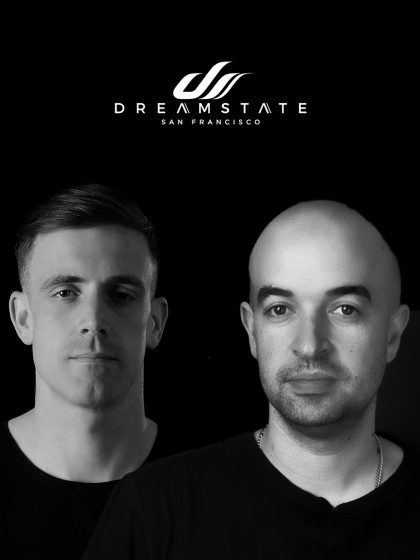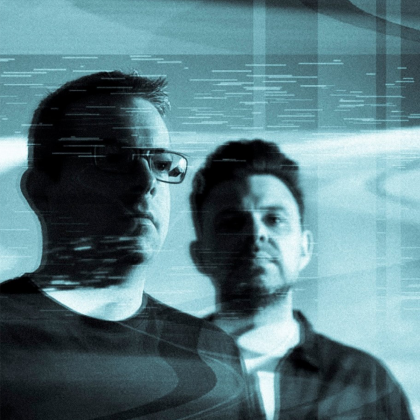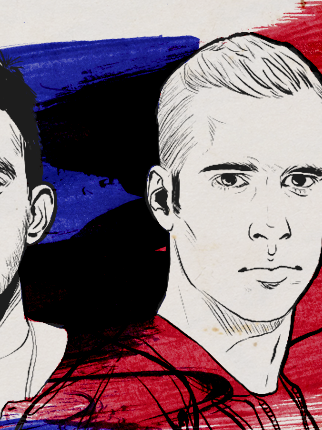Head to Head: Kasra vs. Mefjus
The Head to Head series explores the minds of two genre greats in one in-depth and personal interview together.

The quality of drum & bass production is at an all-time high. Kasra and his Critical Music imprint are one of the leaders in the sound, breaking new ground within the genre when it was thought near impossible to do anything fresh within its parameters. Reid Speed says she’s had to create a separate folder on her USB stick for Critical-style sounds she’s calling “subtle neuro.” One of the crown jewels of Critical is the prolific Mefjus, about whom label-mates Ivy Lab say, “His knowledge of sonic manipulation and synthesis baffles the prowess of the most technically developed producers in the scene.”
Kasra and Mefjus are experienced together often. This can be with their own distinct-sounding and very different DJ sets, or going b2b, the latter of which shines the spotlight on their selection and mixing abilities even more than when they play separately. Despite a decade or so age gap, the two have a somewhat even mentor/mentee-type dynamic, switching roles depending on the situation.
A week or so ahead of Mefjus’ EP with Emperor, Sanity Check, the second in their Hello World series on Critical, Mefjus and Kasra are enjoying a couple of days’ downtime in Los Angeles. This will soon come to an abrupt end with their Funktion gig and appearance at Escape: Psycho Circus, followed by their b2b set at EDC Orlando on Friday, November 4. The two pause for a quick chat about how they came together, what they have established, and where they are headed.

What brought you to drum & bass?
Kasra: I was always into guitar music. I didn’t give electronic music any credence or care. I lumped all of it into “it’s not real music.” I gradually became friends with people who were buying records and DJing and started noticing similarities between underground dance culture and underground guitar culture. For one, they’re both underground, but also, that spirit of making music in a bubble. The bubble is what you and your peers and collaborators want to do and putting it out, it’s not about becoming commercially successful or striving to become famous. It’s about expressing yourself and that natural desire to create. Then I went to my first ever drum & bass event and I felt like I stepped into the future. It blew my mind. It was like nothing I’d ever heard before: equal parts terrifying and exciting.
Mefjus: I have a brother four years older who got me into drum & bass. When he was 16, he was all about hip-hop. He got into drum & bass when he was 20, by then I was 16 so he took me to my first raves. I got hooked pretty quickly.
How did you get into production and DJing?
Mefjus: I started making beats when I got into hip-hop. It’s a stretch to call it making music. It’s playing around with software, collecting some sounds, getting your head around what connects with your ears. Also because of my job as an automation engineer where we program a lot, the way I approach programming is similar to how I approach making beats: from an idea to a result. I like structuring my work.
Kasra: I started DJing when I was 18 with drum & bass, but I’ve never classed myself as a producer. I’m a label owner and a DJ. I collaborate with people so I’ve been involved with many great tunes because of the people I get to work with.
Critical Music has been around since 2002, but it feels like it hit its stride in the last six or seven years.
Kasra: When I started Critical, I always had a job in music working for record labels or management companies. I was running Critical as a hobby and doing some DJ gigs on the weekends. The existence of the label was something I was incredibly proud of, but there was no strategy or plan of releasing records. Once I decided to quit my job and focus on Critical full-time is when everything changed.
Mefjus: That was when I became aware of Critical. I was, and am, a big fan of Enei’s music. That’s what drew my attention to Critical in the first place.

How did you connect with each other?
Kasra: Phace and I played a show together and he played a track of Mefjus’, which he released on his Neosignal label. I was like, ‘This is amazing,’ and he said, ‘It’s this kid from Austria.’ I hit up Mefjus saying, ‘This track is amazing,’ and he was like, ‘Yeah, I sent it to you three months ago.’ I hold my hands up. Sometimes I miss things. We started talking, I brought him to London and we started doing things together.
Mefjus: Yeah, Kasra messed up because I sent it to him first. At the time I was very inspired to write music and I was sitting on tons of stuff. Having releases on a lot of different labels was like testing the waters and finding out who you like. I like all the people I worked with, but if I’d signed to a big UK label too early, it wouldn’t have made sense. Labels I worked with wanted me to sign a deal, really commit with paperwork. That’s not how I roll. Kasra and I have a gentleman’s agreement and it works great. He was the first UK promoter to bring me, a kid from Austria, and book me straight into fabric for Critical Sound. I respect that. It showed he really wanted to work with me
What have you learned from working with each other?
Mefjus: The business side of how music works. I created my career together with Kasra. I learned how music works in terms of how it’s presented, how a record is made, how the music industry works.
Kasra: We’ve done a lot of arduous tours and you learn a lot about people in those circumstances. It’s not just that you spend a lot of time together, it’s that you wake up after half an hour’s sleep to fly halfway across the world. You learn about how you cope and how others cope, how you struggle and how you help each other through it. There was an Australian tour we did where I thought he was going to die—he was so ill. But you look out for each other and make sure they’re looking out for themselves. It’s good to have someone whose company you enjoy.
What do you most admire about each other?
Mefjus: Kasra is very understanding. We’re similar but different at the same time and the cool thing is we can discuss and find a common ground.
Kasra: Mefjus is incredibly talented technically, but he’s also got the musical ability to make it interesting. He makes music that could be seen as quite aggressive but there’s a subtlety there, a deft touch in his production that makes it well rounded and very special. There’s energy, there’s a certain attitude to the music that people have picked up on. It’s admirable how dedicated he is to being the best he can be, and not just throwing music out. He’s always pushing himself to making better music, better sounds.
What quality of each other’s do you wish you possessed?
Kasra: Mefjus’ technical understanding. It’s very rare in modern electronic music to have someone be able to do something really new. When you find yourself lucky enough to work with, to talk with someone who is actually pushing a new perspective, that’s really exciting and interesting.
Mefjus: Kasra’s ear when it comes to having a feeling for who is talented and what works. When I collaborate with people, it’s often quite difficult to get the right vibe or an idea of what I want to bring to make it work. He’s got a very straight, objective sense for what certain mixtures of people or songs even work. It’s a very unique talent.
You had a fantastic collaboration, “Cypher.” Will we be seeing another one?
Kasra: The issue I have with working with someone like Mefjus—one of the most technically advanced producers in the game, he’s in another world—is that I feel like a bit of a cheat going into the studio. It’s really important to me that I bring something to the table. He’s got a very distinctive sound from years of working in the studio that I will never understand. We have a track we’re both happy with for which I’ve tried to bring loads of elements so it doesn’t sound like I was in the room just making coffee. We don’t know when it’s coming out. He thinks there’s something wrong with one of the snares. No one in the world would ever hear it, but some sonic thing in there is bothering him.
Mefjus: The sidechain on the snare is the problem. You can’t really hear it, but you can hear it if you really, really pay attention. The song is cool, I’m very happy with it, but it’s at 92%, still not final. We’re working on a second tune, so we might do a double 12” together.
Follow Mefjus on Facebook | Twitter | SoundCloud
Follow Kasra on Facebook | Twitter | SoundCloud





